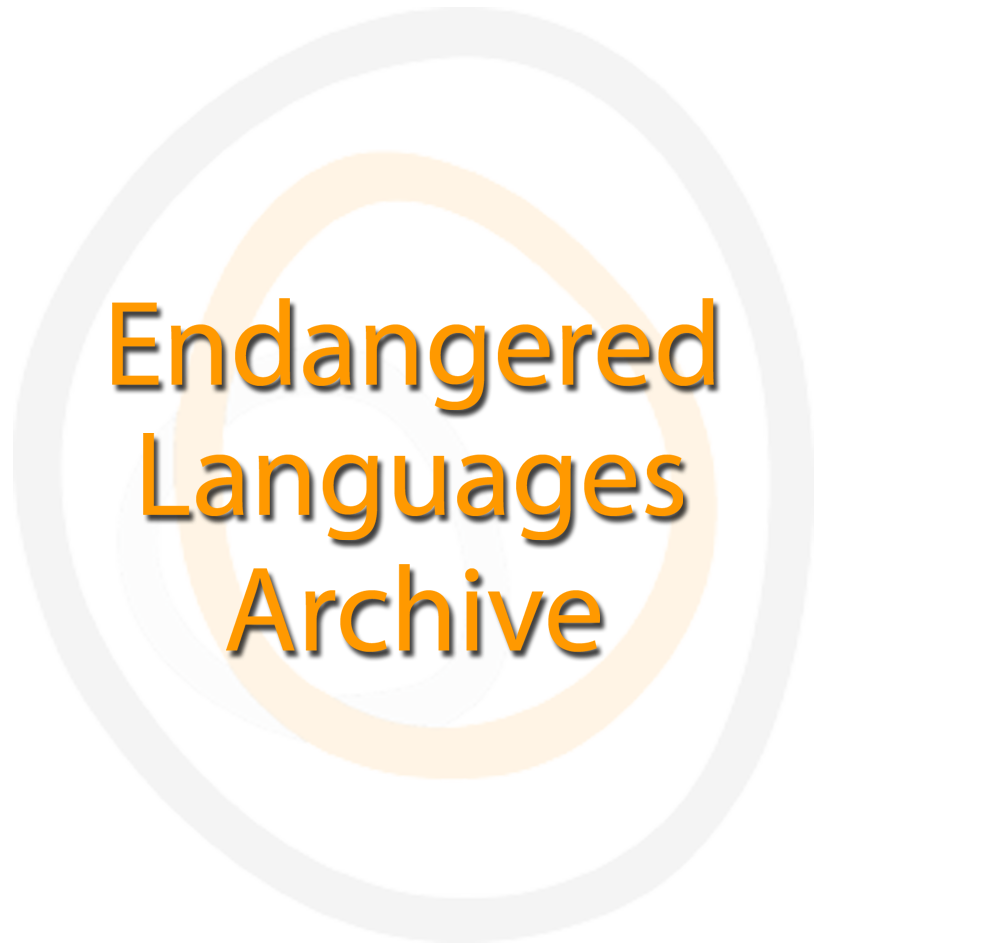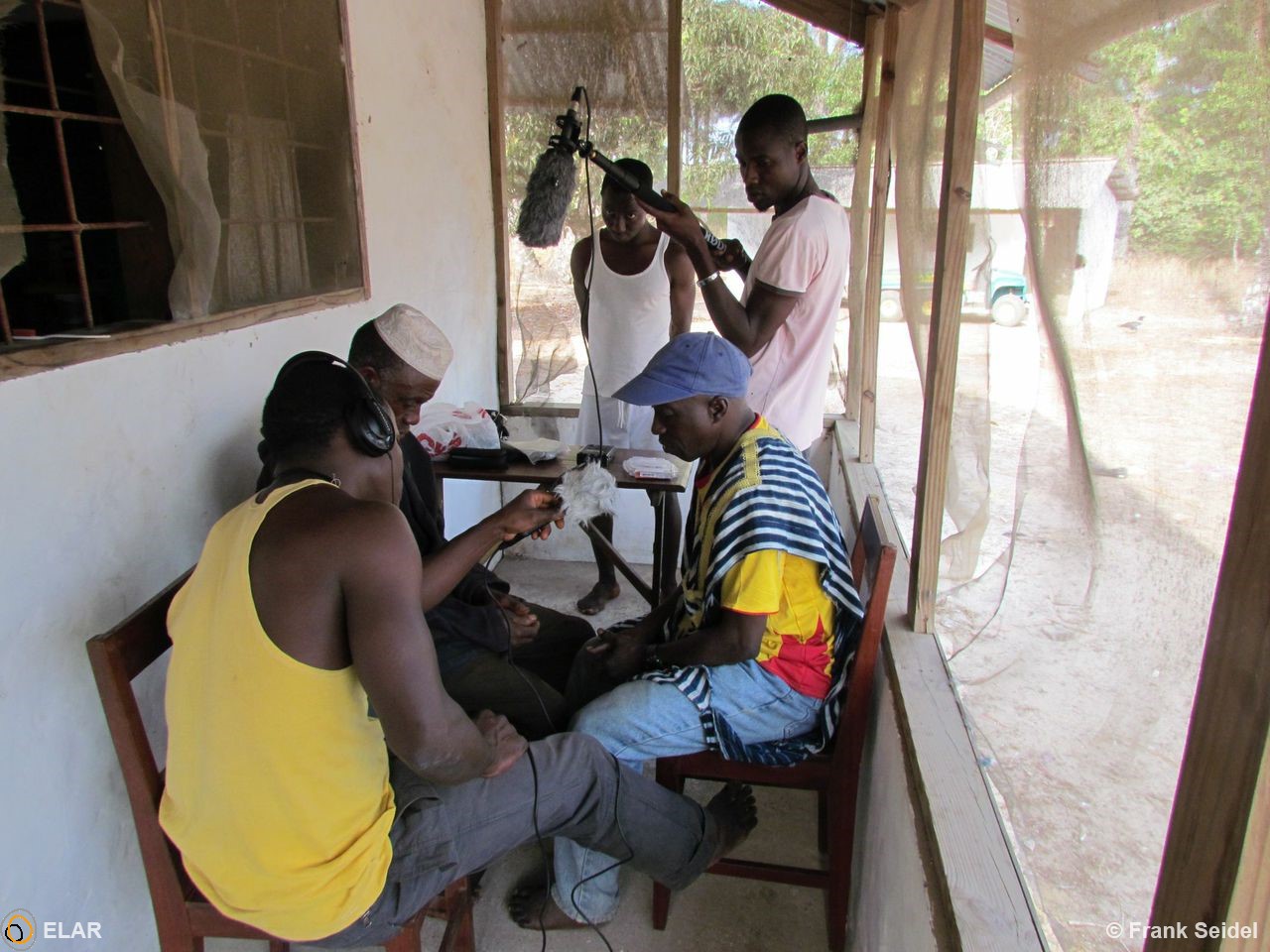Nalu Language Archive
| Language | Nalu |
| Depositor | Frank Seidel |
| Affiliation | University of Florida |
| Location | Guinea |
| Collection ID | 0249 |
| Grant ID | IPF0145 |
| Funding Body | ELDP |
| Collection Status | Collection online |
| Landing Page Handle | http://hdl.handle.net/2196/9d5305c5-1091-4ee6-9243-552a456a0fd1 |
Summary of the collection
This collection contains a record of the little studied Nalu language. At the moment it includes two dictionary collections, audio and audio-visual data from different textual genres, cultural activities, etc., five short documentaries, preliminary drafts for an orthography and a grammatical sketch.
Group represented
Nalu-speakers of Guinea and Guinea-Bissau.
Language information
Nalu is an endangered Atlantic (Niger-Congo) language spoken on the littorals of Guinea and Guinea-Bissau. In Guinea, most Nalu speakers live north of the river Nuñez on the Tristão islands, located in the sub-prefecture of Kanfarandé, prefecture of Boké. Across the border in Guinea-Bissau, speakers of Nalu inhabit the Cacine estuary in the Tombali region.
Nowadays, Nalu speakers are shifting towards Soso. Because of the language shift situation it is hard to gauge exactly how many people actually speak the language still. Numbers vary between 6000-25000. It is predominantly spoken by an adult population (>30 years) but is still transmitted to the next generation in a few remote villlages around Katoufoura.
It is claimed that ancestors to the contemporary language community entered the current living area around the 14th and 15th centuries.
Collection contents
- Preliminary draft for a sketch grammar
- Draft version 1.0.1 for a trilingual dictionary in Toolbox with more than 2000 entries.
- A dictionary for Nalu created by Rolf Engelbrecht for the New Tribes Mission, which has been made available to Frank Seidel towards the end of the first fieldwork period. (This is fortunate, since it will allow for comparison of entries between two independently collected lexicons.)
- Audio and audio-visual files of approximately 70 recording sessions containing stories and fairy-tales of the Nalu, songs, personal narratives, recipes, descriptions on fishing and masonry, Friday prayer sermons in a mosque, public speeches, recounts of the frog story (Mayer 1969), conversations, ethnographic interviews, and a soccer game commentary.
The archive also contains five ethnographic documentaries on various cultural and economical activities typically found among the Nalu:
- Gruber, Martin and Frank Seidel. Muslim in the Village, Kaffer in the Forest. Documentary film on a death ritual of a Nalu female secret society. Great Britain/USA/Germany,
ca. 60 min. - Gruber, Martin and Frank Seidel. Myiba ka mawɛleb. Documentary film on a fishing technique in the mangroves of the Guinea coast. Great Britain/USA/Germany, ca. 10 min. (Shown at the pre-conference film screening of the 4th 4th International Conference on Language Documentation and Conservation, February 2015.)
- Gruber, Martin and Frank Seidel. Myiba ka msɔɔŋket. Documentary film on a fishing technique in the mangroves of the Guinea coast. Great Britain/USA/Germany, ca. 10 min.
- Gruber, Martin and Frank Seidel. Mtow ka awuc. Documentary film on salt extraction in the flood-areas of the mangroves of the Guinea coast. Great Britain/USA/Germany, ca. 10 min.
- Gruber, Martin. 2013. Bɛhɛɛrayɛ (Our missionaries). Documentary film on missionaries among the Nalu. Great Britain/USA/Germany, ca. 10 min. The film was shown at:
- Athens Ethnographic Film Festival 2013
- NAFA Film Festival, Bilbao 2013
- Ethnological Film Festival Kratovo, Macedonia 2013
- Hamburg International Short Film Festival 2014
- World Film Festival, Tartu, Estonia 2014
- Days of Ethnographic Film, Ljubljana, Slovenia 2014
- Antropofest Prague 2014
- Ethnocineca, Vienna 2014
Collection history
The Nalu Language Archive was made possible through funds from the Endangered Languages Documentation Programme (ELDP) for the post-doctoral language documentation project Documentation of Nalu, Tristão islands, Guinea (Atlantic, Niger-Congo) which was hosted by the Center for African Studies (CAS) at the University of Florida and effected in collaboration with the Université Général Lansana Conté de Sonfonia-Conakry (UGLC_SC). Fieldwork was done from January 2011 – June 2011 and January 2012 – May 2012. So far anything contained in this archive originates directly from that project.
Other information
Publications on Nalu based on the archive:
Seidel, Frank (2015, November). Rethinking narrative tenses based on data from Nalu (Atlantic) and Yeyi (Bantu). In: Doris Payne and Shahar Shirtz (eds), Beyond Aspect: The Expression of Discourse Functions in African languages. (Typological Studies in Language 109.) Amsterdam/Philadelphia: John Benjamins: 177–218.
Work in progress:
All of the audio and audio-visual sessions have been transcribed and translated into French in notebooks, but the transcriptions and annotations are not yet available in the archive. Frank Seidel is currently working on finalzing the first sketch grammar (Version 1.0.0) and digitizing the transcriptions and translation with Toolbox. After the first sketch grammar has been finalized and the morphological analyses harmonized with the first sketch grammar, the transcriptions and annotations will betransported to ELAN and time aligned; at which point they will be uploaded iteratively to this archive. Owing to a fieldwork commintment during the first months of 2014 it is planned to make the sketch grammar publicly available in mid-2014 and to upload the first time aligned annotations at the same time.
References
Mayer, Mercer. 1969. Frog, where are you? New York: Dial Press.
Acknowledgement and citation
To refer to any data from the collection, please cite as follows:
Seidel, Frank. 2013. Nalu Language Archive. Endangered Language Archives. Handle: http://hdl.handle.net/2196/00-0000-0000-000F-6612-7. Accessed on [insert date here].



